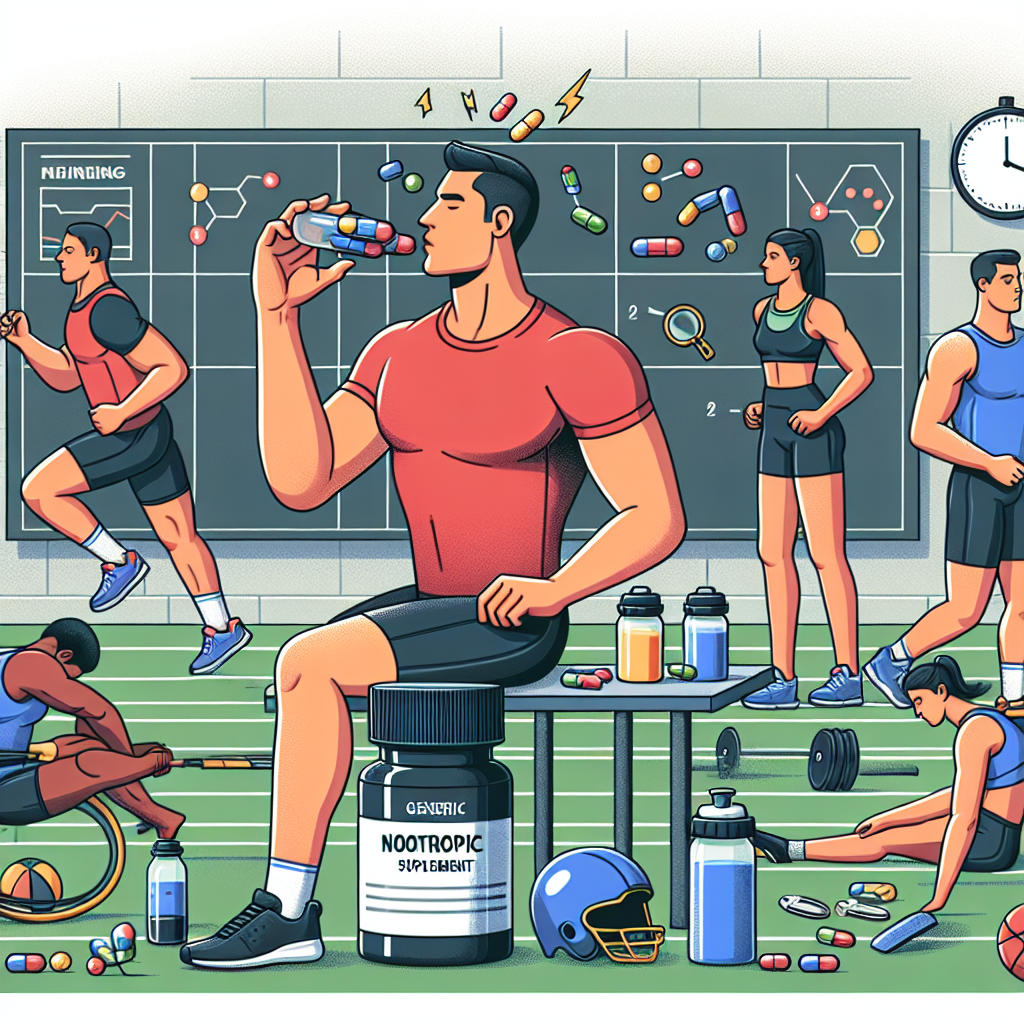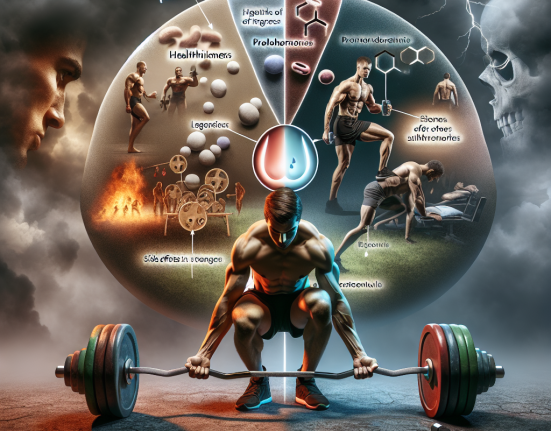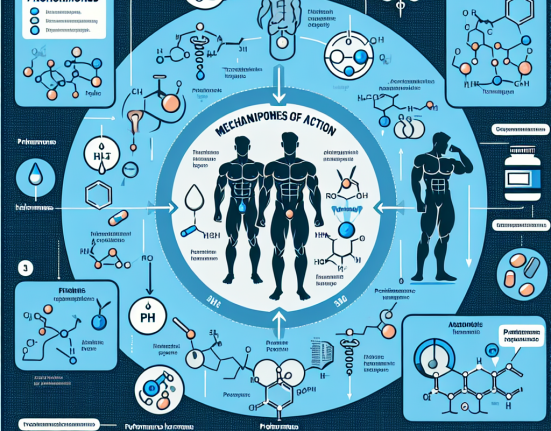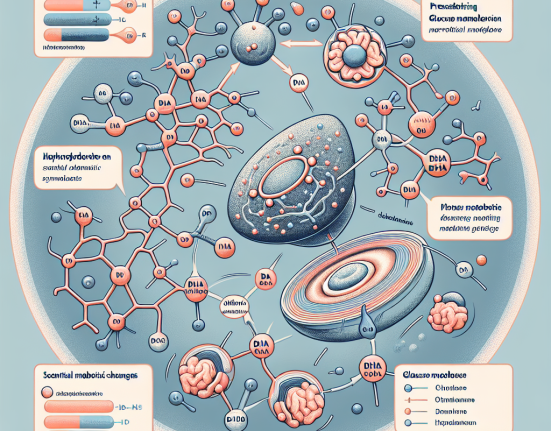-
Table of Contents
- Managing Fatigue in Sports with Modafinil (Provigil)
- The Role of Fatigue in Sports Performance
- The Use of Modafinil in Sports
- Benefits of Modafinil for Athletes
- Improved Focus and Alertness
- Enhanced Endurance
- Reduced Recovery Time
- Pharmacokinetics and Pharmacodynamics of Modafinil
- Real-World Examples
- Expert Opinion
- Conclusion
- References
Managing Fatigue in Sports with Modafinil (Provigil)
Sports performance is a delicate balance between physical training, mental focus, and recovery. Athletes push their bodies to the limit, constantly striving for improvement and success. However, this intense physical and mental demand can lead to fatigue, which can significantly impact an athlete’s performance. In the world of sports, even the smallest edge can make a difference, and that’s where modafinil (Provigil) comes in.
The Role of Fatigue in Sports Performance
Fatigue is a complex phenomenon that can be caused by a variety of factors, including physical exertion, mental stress, and lack of sleep. In sports, fatigue can manifest in different ways, such as decreased muscle strength, impaired decision-making, and reduced reaction time. These effects can significantly impact an athlete’s performance, leading to suboptimal results and even injuries.
One study found that fatigue can decrease an athlete’s performance by up to 40%, highlighting the importance of managing fatigue in sports (Halson, 2014). This is especially crucial in sports that require high levels of physical and mental endurance, such as long-distance running, cycling, and team sports like soccer and basketball.
The Use of Modafinil in Sports
Modafinil, also known by its brand name Provigil, is a wakefulness-promoting agent that has been used to treat sleep disorders such as narcolepsy, obstructive sleep apnea, and shift work sleep disorder. However, its use has extended beyond medical purposes, with some athletes turning to modafinil to enhance their performance.
Modafinil works by increasing the levels of dopamine, norepinephrine, and histamine in the brain, leading to increased wakefulness and alertness (Minzenberg & Carter, 2008). This can be beneficial for athletes who need to stay focused and alert during long training sessions or competitions.
One study found that modafinil can improve cognitive performance, including reaction time, decision-making, and working memory, in sleep-deprived individuals (Wesensten et al., 2005). This can be particularly useful for athletes who may not get enough sleep due to training schedules or travel for competitions.
Benefits of Modafinil for Athletes
The use of modafinil in sports has been a topic of debate, with some arguing that it provides an unfair advantage and should be banned. However, there are several potential benefits of modafinil for athletes that cannot be ignored.
Improved Focus and Alertness
One of the main benefits of modafinil for athletes is its ability to improve focus and alertness. This can be especially beneficial for sports that require sustained attention and concentration, such as long-distance running or cycling. With modafinil, athletes can stay mentally sharp and make split-second decisions, giving them an edge over their competitors.
Enhanced Endurance
Fatigue is a significant factor in endurance sports, and modafinil can help athletes push through physical and mental exhaustion. By increasing wakefulness and alertness, modafinil can delay the onset of fatigue, allowing athletes to perform at their best for longer periods.
Reduced Recovery Time
Recovery is a crucial aspect of sports performance, and modafinil may have a role to play in this area as well. Studies have shown that modafinil can reduce the time it takes to recover from sleep deprivation, allowing athletes to bounce back faster after intense training or competition (Wesensten et al., 2005).
Pharmacokinetics and Pharmacodynamics of Modafinil
Understanding the pharmacokinetics and pharmacodynamics of modafinil is essential for athletes who are considering using it to enhance their performance. Modafinil is rapidly absorbed after oral administration, with peak plasma concentrations reached within 2-4 hours (Minzenberg & Carter, 2008). The half-life of modafinil is approximately 12-15 hours, meaning it can stay in the body for an extended period.
The exact mechanism of action of modafinil is not fully understood, but it is believed to work by inhibiting the reuptake of dopamine, norepinephrine, and histamine in the brain (Minzenberg & Carter, 2008). This leads to increased levels of these neurotransmitters, resulting in wakefulness and alertness.
Real-World Examples
The use of modafinil in sports has been a topic of discussion for many years, with some high-profile cases bringing it into the spotlight. In 2014, American sprinter Kelli White tested positive for modafinil and was subsequently stripped of her medals from the 2003 World Championships (BBC, 2004). White claimed that she had been prescribed modafinil for narcolepsy, but the World Anti-Doping Agency (WADA) had banned the substance for its potential performance-enhancing effects.
Another example is that of British cyclist David Millar, who admitted to using modafinil during his career. In his autobiography, Millar stated that he used modafinil to help him stay focused and alert during long training sessions and races (Millar, 2011). He also claimed that many other cyclists were using the drug, highlighting its prevalence in the world of professional cycling.
Expert Opinion
The use of modafinil in sports is a controversial topic, with arguments for and against its use. Some experts believe that modafinil can provide a significant advantage to athletes, while others argue that it should be banned due to its potential for abuse.
Dr. Mark Stuart, a sports pharmacologist, believes that modafinil can be beneficial for athletes, but only when used responsibly and under medical supervision. He states, “Modafinil can be a useful tool for athletes who need to stay alert and focused during long training sessions or competitions. However, it should only be used under medical supervision to ensure its safe and responsible use.”
Conclusion
In conclusion, managing fatigue is crucial for athletes looking to perform at their best. Modafinil (Provigil) can be a valuable tool in this regard, providing increased focus, endurance, and reduced recovery time. However, its use should be carefully monitored and regulated to ensure fair play and the safety of athletes. As with any medication, it is essential to consult with a medical professional before using modafinil for sports performance.
References
Halson, S. L. (2014). Sleep in elite athletes and nutritional interventions to enhance sleep. Sports Medicine, 44(Suppl 1), S13-S23.
<p






